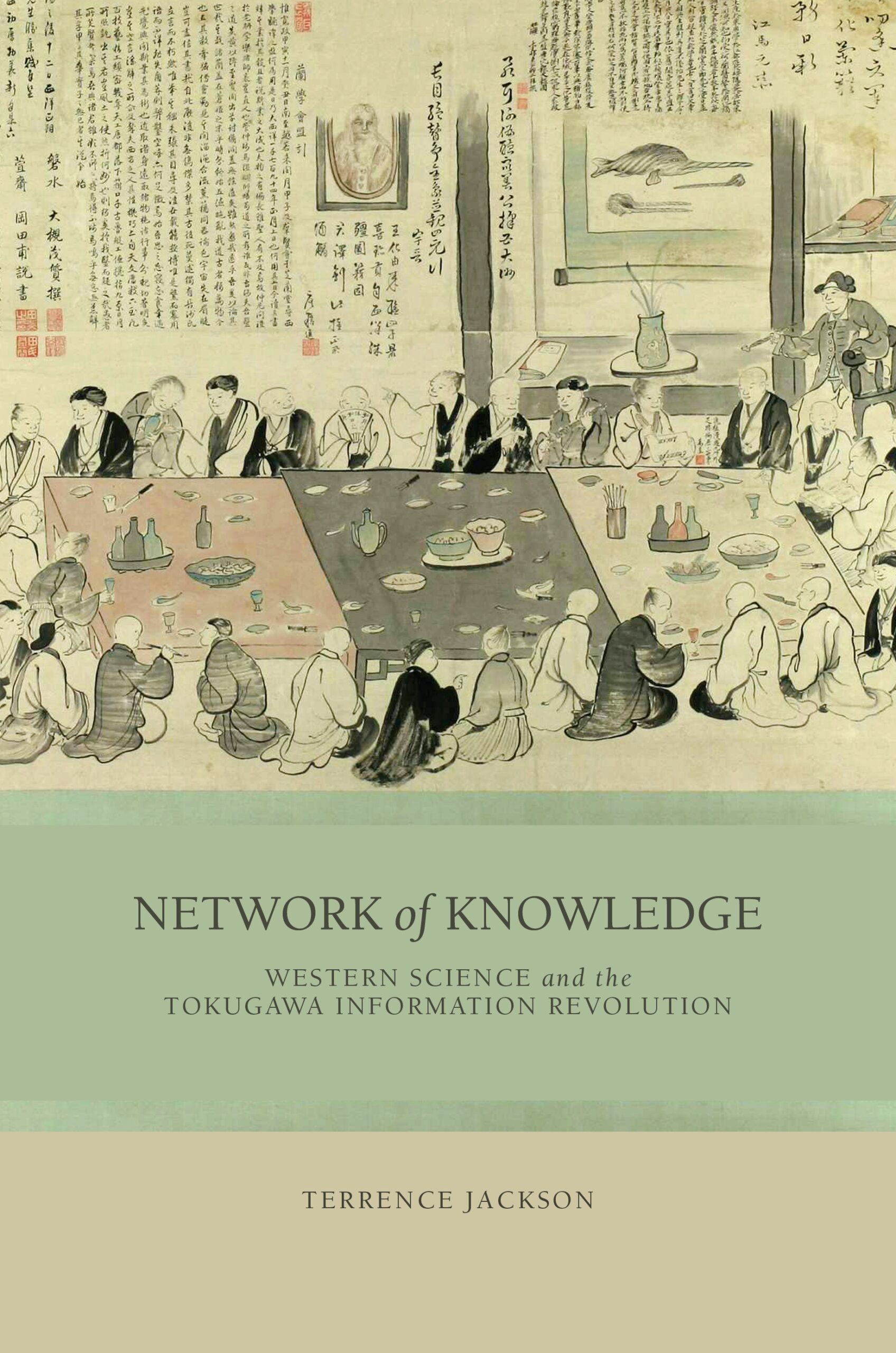Network of Knowledge: Western Science and the Tokugawa Information Revolution
- About the Book
-
Nagasaki during the Tokugawa (1603–1868) was truly Japan’s window on the world with its Chinese residences and Deshima island, where Western foreigners, including representatives of the Dutch East India Company, were confined. In 1785 Ōtsuki Gentaku (1757–1827) journeyed from the capital to Nagasaki to meet Dutch physicians and the Japanese who acted as their interpreters. Gentaku was himself a physician, but he was also a Dutch studies (rangaku) scholar who passionately believed that European science and medicine were critical to Japan’s progress. Network of Knowledge examines the development of Dutch studies during the crucial years 1770–1830 as Gentaku, with the help of likeminded colleagues, worked to facilitate its growth, creating a school, participating in and hosting scholarly and social gatherings, and circulating books. In time the modest, informal gatherings of Dutch studies devotees (rangakusha), mostly in Edo and Nagasaki, would grow into a pan-national society.
Applying ideas from social network theory and Bourdieu’s conceptions of habitus, field, and capital, this volume shows how Dutch studies scholars used networks to grow their numbers and overcome government indifference to create a dynamic community. The social significance of rangakusha, as much as the knowledge they pursued in medicine, astronomy, cartography, and military science, was integral to the creation of a Tokugawa information revolution—one that saw an increase in information gathering among all classes and innovative methods for collecting and storing that information. Although their salons were not as politically charged as those of their European counterparts, rangakusha were subversive in their decision to include scholars from a wide range of socio-economic backgrounds. They created a cultural society of civility and play in which members worked toward a common cultural goal. This insightful study reveals the strength of the community’s ties as it follows rangakusha into the Meiji era (1868–1912), when a new generation championed values and ambitions similar to those of Gentaku and his peers.
Network of Knowledge offers a fresh look at the cultural and intellectual environment of the late Tokugawa that will be welcomed by scholars and students of Japanese intellectual and social history.
- About the Author(s)
-
Terrence Jackson, Author
Terrence Jackson is associate professor of history at Adrian College.
- Reviews and Endorsements
-
- Network of Knowledge recounts in encyclopedic detail Gentaku’s scholarship and its impact in the culture of late Tokugawa Japan. . . . Network of Knowledge: Western Science and the Tokugawa Information Revolution offers an in-depth reconstruction of Gentaku’s life, from his early training in medicine as the son of the domainal physician (han-i) in Ichinoseki, to his rise as the leading rangaku scholar of his time.
—American Historical Review - The merit of the work must be measured not by the amount of new material or interpretations it offers, but instead by the comprehensiveness with which it expertly synthesizes the state of the field concerning the social nature of knowledge in the early modern period. As such, I would highly recommend it to two audiences, the first being historians of the sociology of knowledge in regions other than Japan; Jackson has done an outstanding job of opening up Edo intellectual culture to a broader audience by showing the many similarities that its information systems, collaborative knowledge, science as parlor games, and epistolary transactions share with those in Europe. The second recommended audience is students of Japanese history. The volume is an exemplary model of clear and concise writing, and I cannot think of a better text to introduce students to the world of Tokugawa scholarship.
—Monumenta Nipponica - [This] book is an excellent addition to the field and its orientation makes for a nice pairing with the much-admired (and much longer) articulation of Edo period sociology by Eiko Ikegaki in Bonds of Civility.
—International Journal of Asian Studies - It has been more than a decade since a scholar publishing in the English language has taken the entire field of rangaku as his main subject. In this work, Terence Jackson has raised the historical study of rangaku in late eighteenth- and early nineteenth-century Japan to a new level of interpretation through his application of Bourdieu's insights on cultural production. His description of the spread and flourishing of rangaku through salon-like social gatherings, networking, and the establishment of schools refreshingly connects many disparate strands of information.
—Reinier Hesselink, University of Northern Iowa - This is a fascinating look into the mechanisms of communication. Through the life of physician and scholar Ōtsuki Gentaku, Terence Jackson elucidates not just the transmission of Western knowledge to early modern Japan, but the shifting social climate in which intellectuals functioned. Clearly and concisely written, the book is destined to become an essential resource for any scholar of Japan, intellectual traditions, or networks.
—Martha Chaiklin, Zayed University - Terry Jackson's book is an original look at the development of rangaku in nineteenth-century Japan. Rangaku is covered in most treatments of later Tokugawa and early Meiji Japan, but not in the way Jackson does it. He focuses not so much on the intellectual and educational world of which rangaku was part, but on social networking through a whole range of formal and informal institutions and practices that reveal new understandings of the Tokugawa cultural landscape. He digs up new material on private academies, salons, travel diaries, correspondence, and book circulation to provide unique insights into how rangaku networks functioned in the broader culture of Tokugawa Japan.
—Richard Rubinger, Indiana University
- Network of Knowledge recounts in encyclopedic detail Gentaku’s scholarship and its impact in the culture of late Tokugawa Japan. . . . Network of Knowledge: Western Science and the Tokugawa Information Revolution offers an in-depth reconstruction of Gentaku’s life, from his early training in medicine as the son of the domainal physician (han-i) in Ichinoseki, to his rise as the leading rangaku scholar of his time.
- Supporting Resources
-





